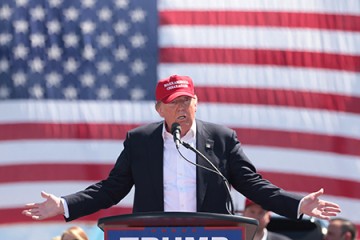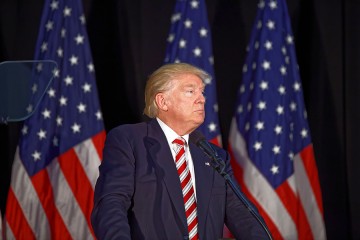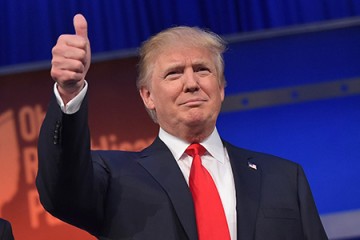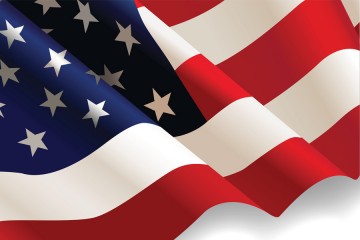In the wake of a divisive presidential campaign and election, Johns Hopkins University leaders have heard from students and other members of the university community from across the political spectrum who say they feel intimidated, bullied, and in some cases unsafe.
Some have voiced concerns about the repercussions of a contest won on rhetoric that was at times racist, anti-Muslim, anti-immigrant, and misogynistic. Others have reported feeling that they, or their points of view, are unwelcome.
In response to those concerns, JHU leaders sent messages over the past week reinforcing the university's commitment to civility, respect, safety, and security.
"Members of our community have expressed a sense of anxiety over what the outcome of this election means for our country, for the world beyond, and of course, for those who were affected by vitriolic campaign rhetoric," JHU President Ronald J. Daniels wrote in an email to The News-Letter last week. "At this moment, I think it is critical that we at Johns Hopkins look to and affirm the mission of our university as a place that embraces the greatest values and aspirations of our nation."
The election highlighted deep divides within the country, on matters of class and race, policy and ideology. Daniels emphasized the university's important role as a venue for the free exchange and debate of these differing points of view.
"The core ethos of the university is more important than ever," he wrote. "Universities stand for a commitment to ideas, to equal opportunity, to facts, to rigorous debate, to respect and civility. This is a time to show our commitment to doing what we do best: to learn from and with each other, to understand what has happened, and to support one another as we work together to protect the values that matter most."
On-campus response to the election has included formal and informal discussions, and at least one protest—on Thursday, more than 100 students took part in a "Hopkins Against Hate" demonstration on the university's Homewood campus, then joined a larger protest group that marched to Baltimore's Inner Harbor.
Later this week, a panel of Johns Hopkins experts will answer questions about what Donald Trump's election victory means for the U.S. and the world. Faculty members from the departments of political science, sociology, and philosophy, as well as from the School of Public Health, are expected to participate.
The event, "Election 2016: Reflections and Implications," is open to the entire university community and will take place Wednesday from 4:30-6 p.m. in the Mason Hall auditorium on the Homewood campus.
"The panel will draw upon the extraordinary and diverse expertise of the university," said Adam Sheingate, chair of the Department of Political Science. "Possible topics for discussion include the status of religious minorities and other vulnerable populations, the future of the Affordable Care Act, and the implications for American foreign relations."
On Monday evening, the university's Office of International Services hosted an event titled "Open Discussion of Results of the Recent Election," a non-political forum to highlight what should and should not be expected from the election results.
Leadership at the Johns Hopkins Bloomberg School of Public Health convened a town hall discussion Friday that lasted nearly three hours—more than an hour longer than originally planned. Participants asked questions about the Trump administration's approach to health policy and public health. Others voiced concerns about safety and discrimination.
On Sunday, Bloomberg School Dean Mike Klag sent a follow-up message to the BSPH community in which he thanked participants for their "willingness to honestly express their frustrations, fears, and anger.
"The promotion of dignity and respect for everyone in our diverse school—across race, ethnicity, gender, religion, sexual identity, and nationality—is one of our central values and defining characteristics," he wrote. "I want to send the strong message that we will do our utmost to keep every member of the Bloomberg School community safe and to protect our human rights and those of the broader community."
In a message sent Monday, Beverly Wendland, dean of the Krieger School of Arts and Sciences; and Ed Schlesinger, dean of the Whiting School of Engineering, acknowledged the campaign was "contentious" and "highlights divisions in this country." They provided a list of resources available to JHU students, faculty, and staff.
"If you or someone you know is feeling overwhelmed or depressed or even frightened, I encourage you to reach out to the chaplain's office, to our student counseling office, or to the faculty/staff assistance program.
"Our campus members are welcome in these spaces, regardless of your politics. And, if you happen to experience or observe behavior that does not correspond with the ideals and values of Johns Hopkins, reach out and tell us."
Posted in University News
Tagged diversity, election 2016












